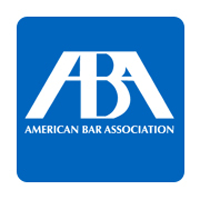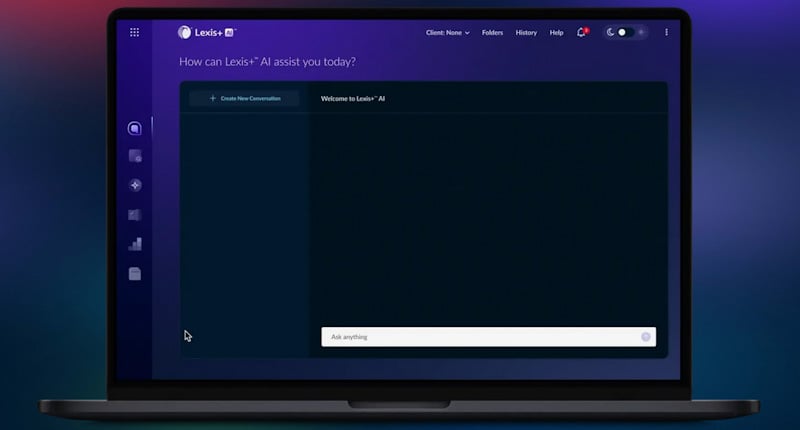ABA official expressed concern but didn't ban report calling Trump 'a libel bully,' spokeswoman says

Updated: A report prepared for the ABA Forum on Communications Law concluded that Donald Trump was a “libel bully” who has a “sorry record” in speech-related cases filed in public courts.
But the report was never published by the forum, the New York Times reports. The Times article by Adam Liptak says the ABA refused to publish the report because of a fear of being sued, but that’s “absolutely incorrect,” according to Carol Stevens, the ABA’s associate executive director for communications and media relations. The ABA released a statement to this effect Tuesday afternoon.
The ABA announced in a subsequent statement on Friday that the forum will publish the article next week.
Association policy prevents ABA officials from banning an association entity from publishing an article, Stevens tells the ABA Journal. ABA deputy executive director James Dimos did express concerns in an email about the use of partisan language in the report, especially during election season, Stevens said. And he did suggest (but did not require) minor changes, she said. (The ABA Journal is itself editorially independent, though Dimos has an oversight role.)
“I would ask that you please give consideration to our suggested changes,” Dimos wrote. “I think that they do no harm to the article while addressing the legitimately held views of ABA staff who are charged with managing the reputational and financial risk to the association.”
The author of the report, First Amendment lawyer Susan Seager, withdrew the article hours after Dimos sent the email, Stevens says.
Seager tells the ABA Journal she did withdraw the article. “My feeling was that this wasn’t a suggested edit at all, but this is what they wanted me to do,” she said. Seager says she wasn’t involved in the discussions with association officials, but said there had been “heated” discussions over the article for days, and she interpreted the email as a message that the battle over the edits had been lost.
George Freeman, the executive director of the Media Law Resource Center, is a former chair of the forum and a member of its advisory board. He says he was involved in a conference call in which the ABA administration expressed concerns several days before the Dimos email. He says the ABA edits were “significant” and had removed “anything of humor or a caustic nature.”
In light of Dimos’ email, it was “a fair assumption” that the article would not be published without most or all of the edits, Freeman says. Asked if the forum could have published the article without the changes, Freeman said ABA staffers publish the newsletter, so Seager’s story wouldn’t have been published. “Since the ABA has their hands on the typewriter, so to speak,” he said, “they get the ultimate call.”
Dimos’ suggestions included cutting the first paragraph of Seager’s report. “Donald J. Trump is a libel bully,” the report begins. “Like most bullies, he’s also a loser, to borrow from Trump’s vocabulary.” The report has been published by the Media Law Resource Center under Seager’s name.
Out of seven cases filed by Trump, the report said, four were dismissed on the merits, two were voluntarily withdrawn, and one was a default win in an arbitration in which a former Miss Pennsylvania failed to appear.
In the email provided to the ABA Journal, Dimos raises concerns about the article’s “tone.”
“Name-calling and questioning Mr. Trump’s mental capacity is neither civil nor the type of rhetorical device that meets the forum’s professed standards of publishing scholarly articles,” he writes.
“Such language transforms a legitimate scholarly article into a partisan attack. The American Bar Association is a nonpartisan voluntary membership association. Our members’ beliefs and affiliations reflect that whole political spectrum. The publishing of a partisan attack piece in the midst of a highly charged election season will certainly create the perception that the ABA is aligning with one political party against the other and will hurt our credibility with members.”
The email also raises the possibility of a Trump lawsuit. ABA officials don’t believe a Trump lawsuit would have merit, the email says, but it would be reasonable to reduce the likelihood of a suit “by removing inflammatory language that is unnecessary to further the article’s thesis.” The full email is at the end of this story.
The suggested edits include a change to the original title of the report, which was “Donald J. Trump Is a Libel Bully but Also a Libel Loser.” The ABA suggested changing it to read “Presidential Election Demonstrates Need for Anti-Slapp Laws.” The reference was to Strategic Lawsuits Against Public Participation laws that allow early dismissal of libel suits and recovery of the defendant’s legal fees.
The Times spoke with Freeman and two other former chairs of the ABA Forum on Communications Law who criticized the ABA for its actions. “As the guardian of the values of our legal system,” Freeman told the Times, “the ABA should not stop the publication of an article that criticizes people for bringing lawsuits not to win them but to economically squeeze their opponents.”
Former chair David Bodney said the country’s best media lawyers were willing to defend the association for free if Trump had filed suit.
Seager, the report author, says the ABA reaction proves her point in the report. “My takeaway is that his threats and frivolous lawsuits worked in this case, at least for a couple hours, in that an article was going to be watered down for fear of being sued by Donald Trump,” she tells the ABA Journal.
Here is the full email from Dimos, sent to an editorial board member with the forum:
“Questions regarding the article ‘Donald J. Trump is a Libel Bully but also a Libel Loser’ have been raised by members of the association staff. It is my understanding that a call was held last Friday with staff and members of the forum to discuss these questions. I am writing to follow up on that call.
“In my role as Deputy Executive Director, I am responsible for the sections, divisions, and forums as well as the association as a whole. Prior to joining ABA staff last year, I was in private practice for almost 30 years where my practice included representing the media. I am quite familiar with the forum’s work and the substantive law addressed in the article. I was a member of the forum and served as its liaison to the ABA Board of Governors when I was on the ABA’s Board. In my role as the forum’s board liaison, I assisted the forum in having the ABA House of Delegates adopt policy urging more states to enact anti-SLAPP statutes. On the substantive law, I am one of the few lawyers who have successfully used Indiana’s anti-SLAPP statute to prevail in a defamation and tortious interference lawsuit.
“I have reviewed the article and I believe it raises many good points regarding the need for more anti-SLAPP legislation. Further, I think it is certainly appropriate to use Mr. Trump’s litigation history as the example for why anti-SLAPP legislation is necessary. However, I have concerns about the tone used in in some portions of the article as well as speculation regarding Mr. Trump’s state of mind. These concerns are shared by our General Counsel Office, Government Affairs Office, Communications and Media Relations Office, and Professional Services staff. In order to facilitate sharing those concerns, I have attached a ‘redline’ version showing my suggestions for modest changes to address them along with a clean version incorporating them. We also picked up some typos as well.
“In essence, the concerns center on the ad hominem arguments made in the article. In reading it, I was reminded of what the Forum’s Immediate Past Chair David Bodney said in his ‘From the Chair’ article in the Winter 2016 edition of Communications Lawyer: “Whatever our politics, however we vote, media lawyers have a special duty to speak out, civilly, against steps to punish the media on trumped up charges, here and abroad.” (emphasis added). Name calling and questioning Mr. Trump’s mental capacity is neither civil nor the type of rhetorical device that meets the forum’s professed standards of publishing scholarly articles.
“In addition, such language transforms a legitimate scholarly article into a partisan attack. The American Bar Association is a nonpartisan voluntary membership association. Our members’ beliefs and affiliations reflect that whole political spectrum. The publishing of a partisan attack piece in the midst of a highly charged election season will certainly create the perception that the ABA is aligning with one political party against the other and will hurt our credibility with members. The inclusion of the disclaimer required by policy will not serve to diminish that perception or impact. The ABA’s nonpartisan stance serves the organizational mission well in many respects, and is particularly effective in enabling us to maintain good governmental relations efforts going forward and to gain access to members of Congress—including lobbying on issues such as the adoption of a federal anti-SLAPP statute.
“Finally, the gratuitous use of the ad hominem attacks will increase the risk of the ABA being sued by Mr. Trump. The article itself proves this point. While we do not believe that such a lawsuit has merit, it is certainly reasonable to attempt to reduce such a likelihood by removing inflammatory language that is unnecessary to further the article’s thesis. Honestly, it is the same advice members of the forum would provide to their own clients.
“I would ask that you please give consideration to our suggested changes. I think that they do no harm to the article while addressing the legitimately held views of ABA staff who are charged with managing the reputational and financial risk to the Association. I would be happy to discuss this with you further.
“Thanks,
“Jim”
Updated on Oct. 28 to include ABA statement that the article will be published next week.



